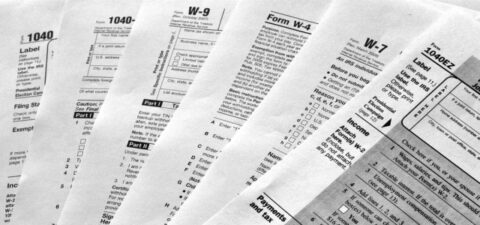Economics

How States And Local Economies Benefit From Immigrants
Detroit usurped Jefferson County, Alabama’s place last week as the largest municipality in the United States ever to file for bankruptcy. And as signs increasingly pointed toward the city’s financial issues, local leaders in Southeast Michigan have been exploring ways in which to stabilize or strengthen Detroit’s economy. One way to do that is to encourage more immigrants to settle there. New restaurants, shops, and residents already have helped to revitalize one area in Southwest Detroit called Mexicantown. And there is no doubt that immigrant entrepreneurs and innovators play an important role throughout Michigan as well. Immigrant entrepreneurs create jobs, bring in additional revenue, and contribute significantly to the state’s economy. Highly skilled immigrants are vital to the state’s innovation activities, spurring further growth. As such, local leaders and advocates recognize the importance of immigrants in their communities and support immigration through local “welcoming” and integration initiatives. Read More

Immigration Reform Fattens State Economies, Too
“Should the United States be pro-immigrant?” asked Tax Watchdog Grover Norquist. “That’s like asking whether McDonald’s should make hamburgers. It’s made the United States work for several hundred years. It’s what’s made us different, what’s made us more successful,” said Norquist during a recent call summarizing a new report from Regional Economic Models, Inc. (REMI) on the economics of immigration reform. Read More

New Estimates of State and Local Taxes Paid by Undocumented Immigrants
Undocumented immigrants who live and work in the United States pay billions of dollars in taxes every year to state and local governments. Given the chance to earn legal status, they would pay even more. Those are the simple yet powerful conclusions of a new study by the Institute on Taxation and Economic Policy (ITEP). According to ITEP, “undocumented immigrants paid an estimated total of $10.6 billion in state and local taxes in 2010.” Moreover, “allowing undocumented immigrants to work in the United States legally would increase their state and local tax contributions by an estimated $2 billion a year.” In short, legalization pays. Read More

DREAMers Push For A Path To Citizenship
Ahead of a Wednesday meeting of House Republicans to discuss various options on immigration reform, hundreds of DREAMers—young immigrants who arrived in the U.S. as children—held their own version of a citizenship ceremony and rally yesterday to push for legislation that will provide a roadmap to citizenship for not only themselves but for millions of other undocumented immigrants as well. “We have come today to claim our citizenship,” said United We Dream’s Lorella Praeli. “2013 is not the time for separate but equal. It is not the time for legalization for some and citizenship for others.” Read More

Immigrants are Key Driver of U.S. Talent and Economic Competitiveness
U.S. workers in science, technology, engineering, and mathematics (STEM) fields have been important contributors to American innovation, job creation, rising incomes, and global economic competitiveness throughout the years. And not surprisingly, immigrants have played a critical role in American innovation through STEM fields and all parts of the U.S. economy. A new report by Gordon Hanson (University of California, San Diego) and Matthew Slaughter (Dartmouth) describes these important relationships between talent, economic competitiveness, and immigration in the United States. In their paper, the authors present data in support of three critical points: Read More

Immigrants Boost Economic Vitality through the Housing Market
Abundant research shows that immigration is a net benefit to the United States’ economy. It leads to higher wages, business formation, job creation, and greater innovation – nationally and locally. Foreign workers who immigrate to the U.S. help alleviate labor force gaps left by a workforce increasingly nearing and entering retirement age. Furthermore, immigrants help fulfill growing healthcare needs of an aging population. In addition to these positive benefits of immigration, the favorable effect immigrant home-buyers have on the housing market is another important economic impact. Indeed, new research from the Americas Society/Council of the Americas and the Partnership for a New American Economy describes how the 40 million immigrants residing in the United States added $3.7 trillion to housing wealth in the U.S. The research, prepared by Jacob Vigdor at Duke University, uses county-level data on population and housing from the U.S. Census Bureau and American Community Survey from 1970 to 2010. The results show that immigration led to a boost in home values, particularly in neighborhoods hit hardest by the U.S. housing bust. Read More

Immigrants and Their Children Fill Gaps Left by Aging American Workforce
Over the next two decades, as the baby boom generation continues entering retirement, we will experience the largest exodus from the workforce by any generational cohort in American history. This wave of retirees will create a labor force deficit among the millions of jobs baby boomers depart from on top of new job growth industries create. Amid this great demographic shift, immigrants and their children are poised to play a critical role in filling workforce gaps left by massive baby boom generation retirements over the next twenty years, as a new forward-looking report from the Center for American Progress describes. Read More

Busting the Myth of the “Job Stealing” Immigrant
Some critics of the immigration bill now winding its way through the Senate claim that it would increase unemployment among native-born workers—especially minorities—by adding more immigrants to an already tight job market. In fact, both the legalization and “future flow” provisions of the bill would empower immigrant workers to spend more, invest more, and pay more in taxes—all of which would create new jobs. Contrary to the simplistic arithmetic of immigration restrictionists, employment is not a “zero sum” game in which workers compete for some fixed number of jobs. All workers are also consumers, taxpayers, and—in many cases—entrepreneurs who engage in job-creating economic activity every day. Read More

Immigrant Entrepreneurs Grow Industries and Create Jobs
As you might suspect, immigrant entrepreneurs are key drivers in the transportation, food and building services industries. And a recent report from the Immigrant Learning Center (ILC) shines a spotlight on immigrant entrepreneurship in these industries, with a particular geographic focus on Massachusetts, New York, and Pennsylvania. Concerning the three industry areas, the ILC study – through an analysis of public data and interviews with immigrant business owners and industry representatives – finds the following: Read More

Three Ways Immigration Reform Would Make the Economy More Productive
By David Dyssegaard Kallick, Director of the Fiscal Policy Institute’s Immigration Research Initiative. A report just released by the Fiscal Policy Institute, Three Ways Immigration Reform Would Make the Economy More Productive shows that legalization of undocumented immigrants, done right, would do three things to increase economic productivity in the United States. Read More
Make a contribution
Make a direct impact on the lives of immigrants.
